What’s next for war-weary Syrians?
Syrian President Bashar al-Assad and his family fled the country, in a covert mission to Moscow, leaving Syrians bewildered about what comes next after 13 years of brutal civil war.
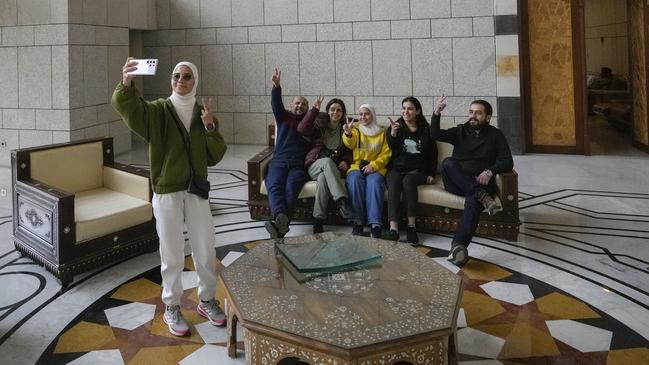
Syrian President Bashar al-Assad and his family fled the country, assisted by Russia, in a covert mission to Moscow on Sunday, leaving Syrians bewildered about what comes next after 13 years of brutal civil war.
Jubilant Hayat Tahrir al-Sham leader Mohammed al-Jolani delivered an address from inside Umayyad Mosque on a day rebels looted and destroyed Mr Assad’s residences and the Iraq embassy, promising to work with Mr Assad’s former prime minister to facilitate the transition of power.
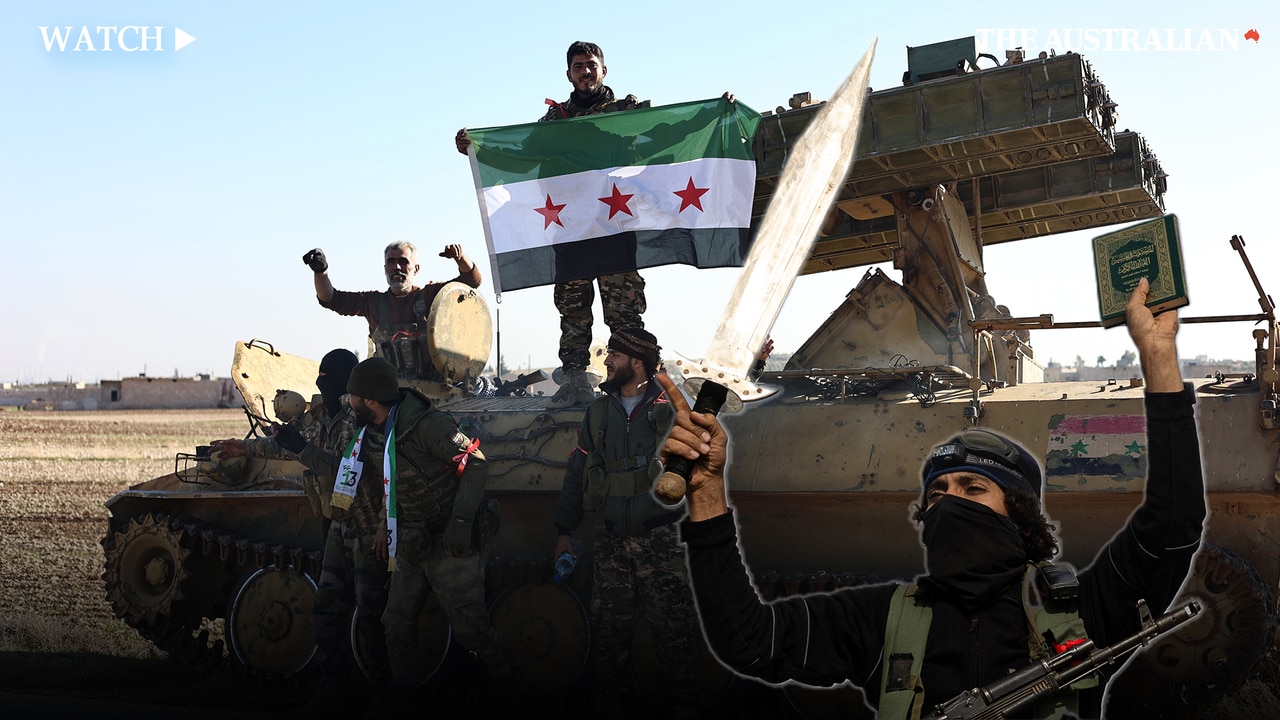
Mr Jolani hailed the lightning offensive that began less than two weeks ago in Idlib province, saying “Syria is being purified”, and referring to Mr Assad’s mafia-like “farm for Iran’s greed” that manufactured the amphetamine Captagon to enrich himself and his associates.
“This victory, my brothers, is a victory for the entire Islamic nation,” said Mr Jolani, a Salafist and former member of al-Qa’ida. Countries immediately began to forge diplomatic ties with the rebels, especially Russia, which has strategically important naval and military bases on the western coast of Syria.
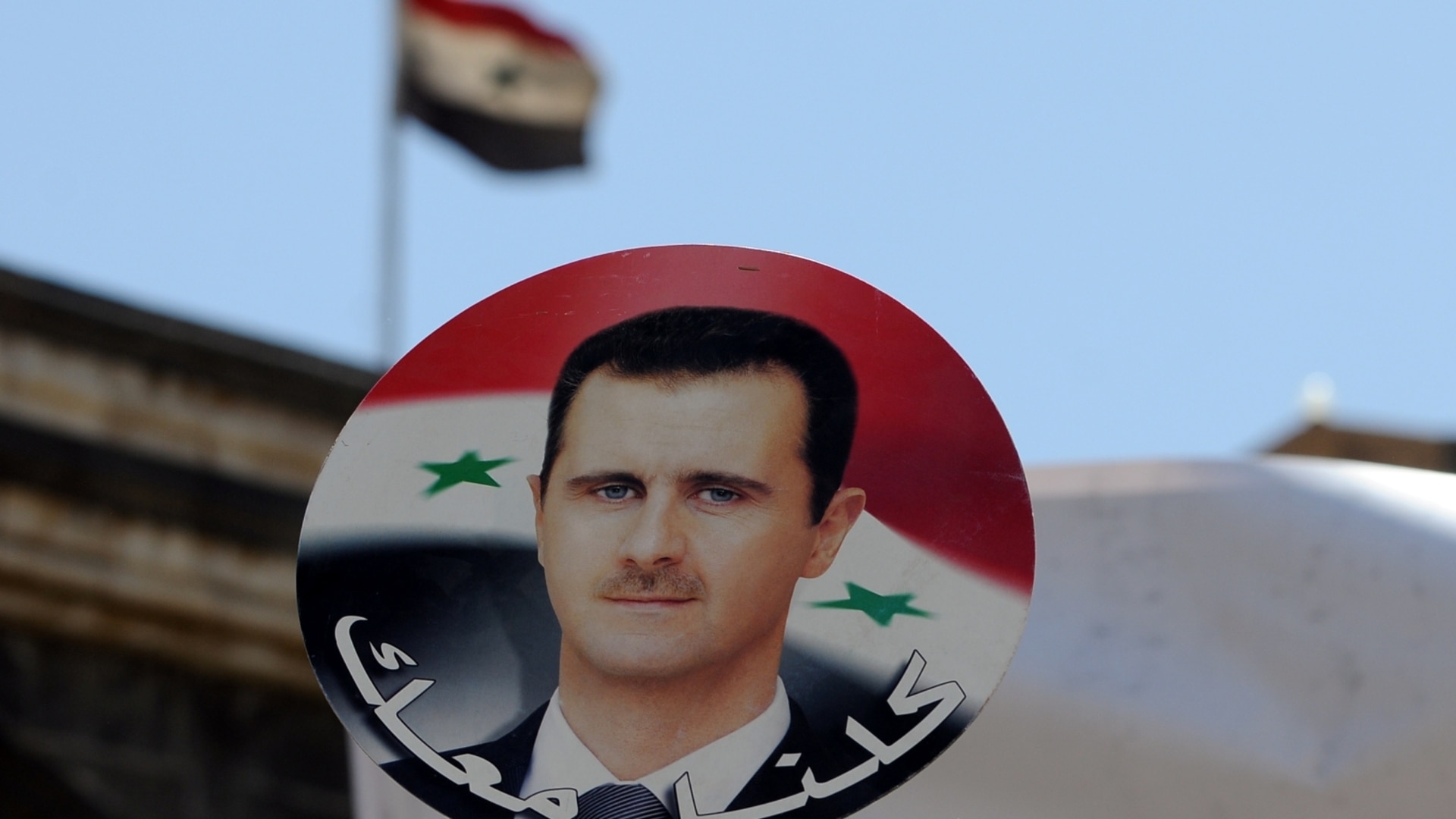
The Russian Tass news agency reported a Kremlin source saying the leaders of armed Syrian opposition had guaranteed the security of the Russian military bases and diplomatic missions on Syrian soil.
On Syria’s borders, neighbouring countries Israel and Iraq sent reinforcements. At the Lebanese and Turkish borders there were queues of cars carrying Syrian families wanting to go back home.
It was also a time for quick moves by Israel, Turkey and the United States.
Israel moved its military deep into the Golan Heights to reinforce the Syrian border, then bombed Damascus, destroying a security complex in Kafr Sousa housing a military facility and research centre Iran had been using to develop missiles.
Israeli Prime Minister Benjamin Netanyahu said the overthrow of Mr Assad was a “historic day in the Middle East”, which “offers great opportunity but also is fraught with significant dangers”.
The US unleashed dozens of bombing raids to target “known ISIS camps and operatives in central Syria”.
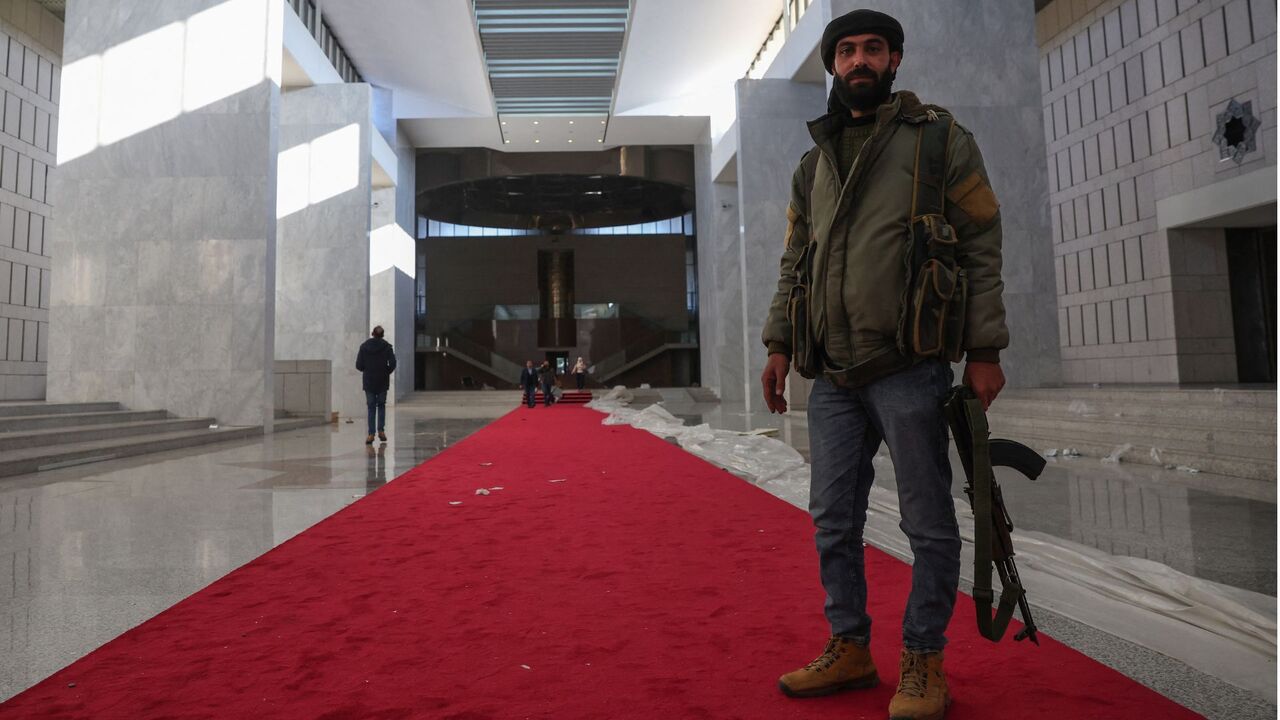
US President Joe Biden said the precision airstrikes were to guard against concerns that Islamic State would regroup in the vacuum of power after the fall of Mr Assad.
Some 900 US troops will remain in northeastern Syria, working with the Kurdish-led Syrian defence forces to prevent a resurgence of ISIS.
Further to the north, Turkey reinvigorated its attack on Kurdish factions it believes are linked to the PKK terrorist group, with attacks in the eastern Aleppo province,
“It’s a moment of historic opportunity for the long-suffering people of Syria to build a better future for their proud country,” US President Joe Biden said.
“It’s also a moment of risk and uncertainty. As we all turn to the question of what comes next, the United States will work with our partners and the stakeholders in Syria to help them seize an opportunity to manage the risk.”
Just outside Damascus, at the slaughterhouse Sednaya prison, desperate families were still trying to break through several floors of thick concrete into underground bunkers to release severely tortured political prisoners. Hundreds of prisoners remain trapped in electronically locked cells.
Mr Assad, wife Asma and their children arrived in Moscow on Sunday night, having been evacuated from Damascus by Russian special forces as the rebels advanced on the capital early Sunday local time. It’s understood their eldest son was already in Russia, having studied at university there.
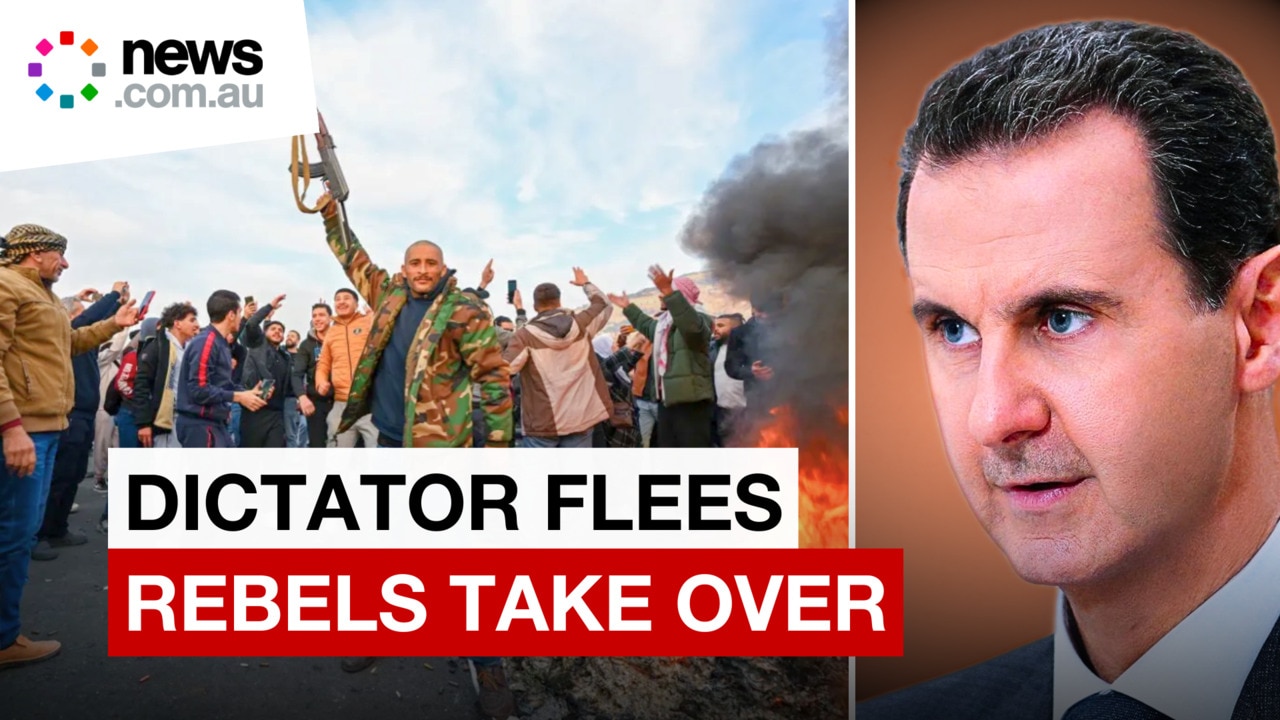
“Assad and members of his family have arrived in Moscow,” a source told the Tass news agency. “Russia granted them asylum on humanitarian grounds.”
The UN Security Council was set to hold an emergency meeting on Monday to discuss the Syria developments.
Various embassies had already changed their flags to the rebel colours, while other countries were awaiting further developments.
British Prime Minister Sir Keir Starmer said it was too early to engage with HTS, proscribed as a terrorist organisation in Britain.
“We do need a political solution, and that’s what we are talking to regional allies about,” he said.
“It is a good thing Assad has gone, a very good thing for the Syrian people. What we must also ensure is the rejection of terrorism and violence, and that civilians are protected, minorities are protected, and that can only be through a political process.”




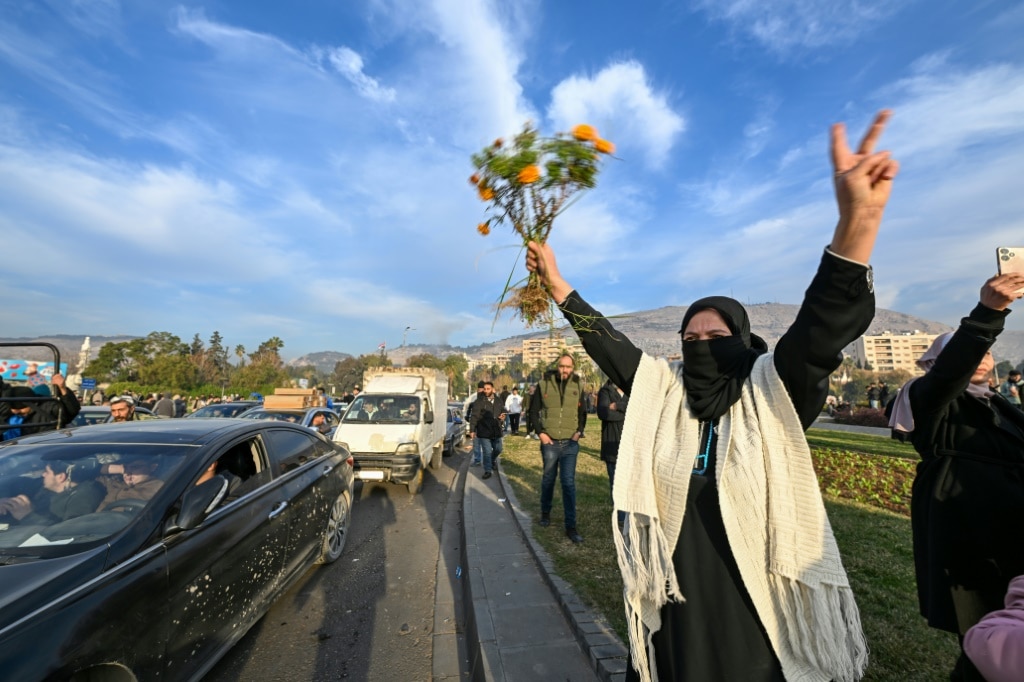
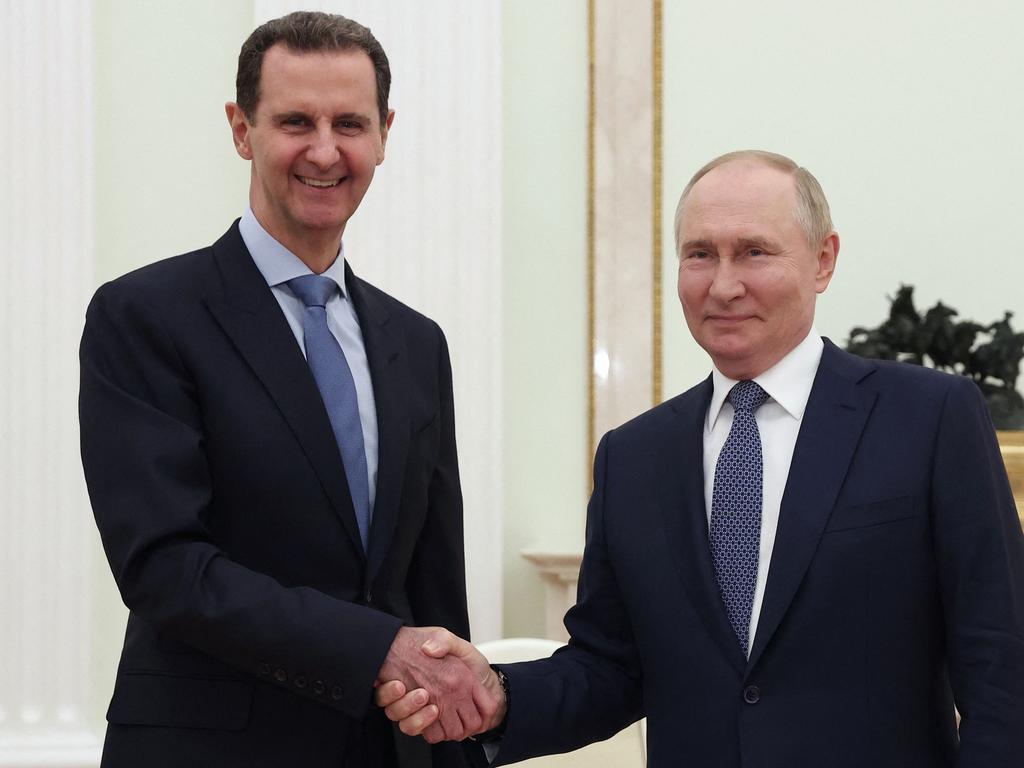
To join the conversation, please log in. Don't have an account? Register
Join the conversation, you are commenting as Logout